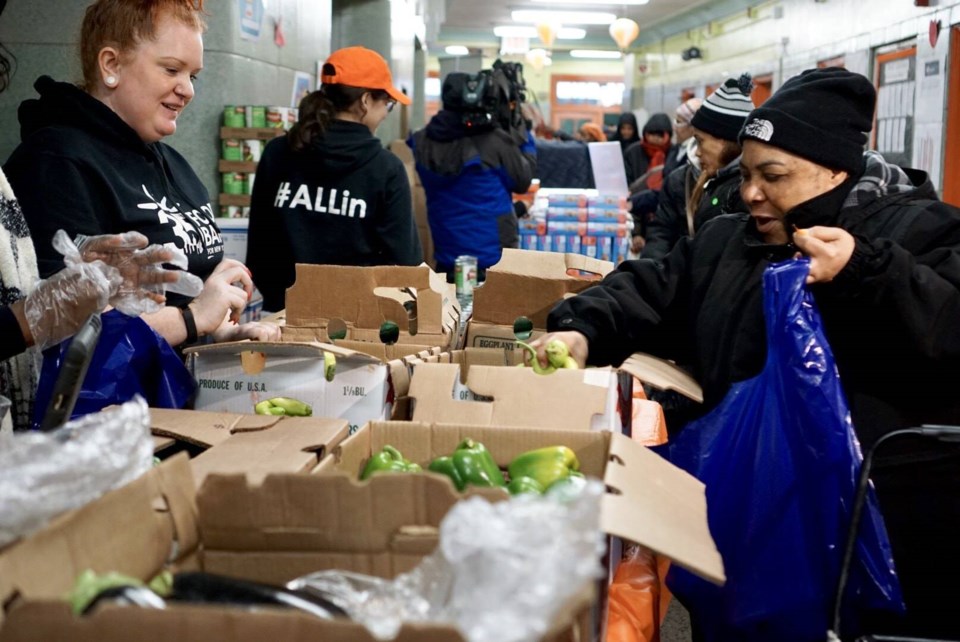The Trump Administration's newly released "public charge" rule will scare Brooklynites away from accessing vital programs that help feed their families and further strain emergency food providers, the Food Bank for New York City warns. Under the new rule, immigrants could be denied green cards if they accessed public benefits such as Medicaid or Supplemental Nutrition Assistance Program (SNAP).
The rule could particularly impact communities in Bedford Stuyvesant and Brownsville, where 30 percent of residents rely on SNAP to buy their groceries.
"The policies coming out of the federal government are already having a chilling effect on some of our most vulnerable neighbors, scaring them away from SNAP and other vital resources like shelter and healthcare," said Camesha Grant, vice president for Community Connections and Reach at Food Bank For New York City. "This rule would lead to thousands more New Yorkers going hungry every day."
And data provided by NYC's Human Resources Administration seems to confirm this fear: Since the Department of Homeland Security announced proposed changes to the public charge rule in September, 25,000 eligible New Yorkers have un-enrolled from SNAP.
U.S. Citizenship and Immigration Services announced on Monday that the new regulation will go in effect on October 15. USCIS Acting Director Ken Cuccinelli branded the rule change as a "promotion of self-sufficiency and immigrant success," and tenets of the American dream.
"Throughout our history, self-sufficiency has been a core tenet of the American dream," said Cuccinelli. "Self-reliance, industriousness and perseverance laid the foundation of our nation and have defined generations of hardworking immigrants seeking opportunity in the United States ever since. Through the enforcement of the public charge inadmissibility law, we will promote these long-standing ideals and immigrant success."
The rule will aggravate food insecurity in neighborhoods like Bedford Stuyvesant and Brownsville and force Brooklynites to turn to emergency food providers that are already stretched thin, said Grant. More than half of the city's soup kitchens and food pantries report running out of food already. A recent survey of NYC's emergency food network found 81 percent of soup kitchens and food pantries see the changed public charge rule as a significant threat to their ability to serve New Yorkers in need.
"Without SNAP—our city's first line of defense against hunger—New Yorkers would be forced to turn to our network of emergency food providers more often," said Grant. "The strenuous efforts of the nonprofit sector are not sufficient to make up the funding gap created by bad public policy. This change to the public charge rule will lead to longer lines and empty shelves at soup kitchens and food pantries across the city."




